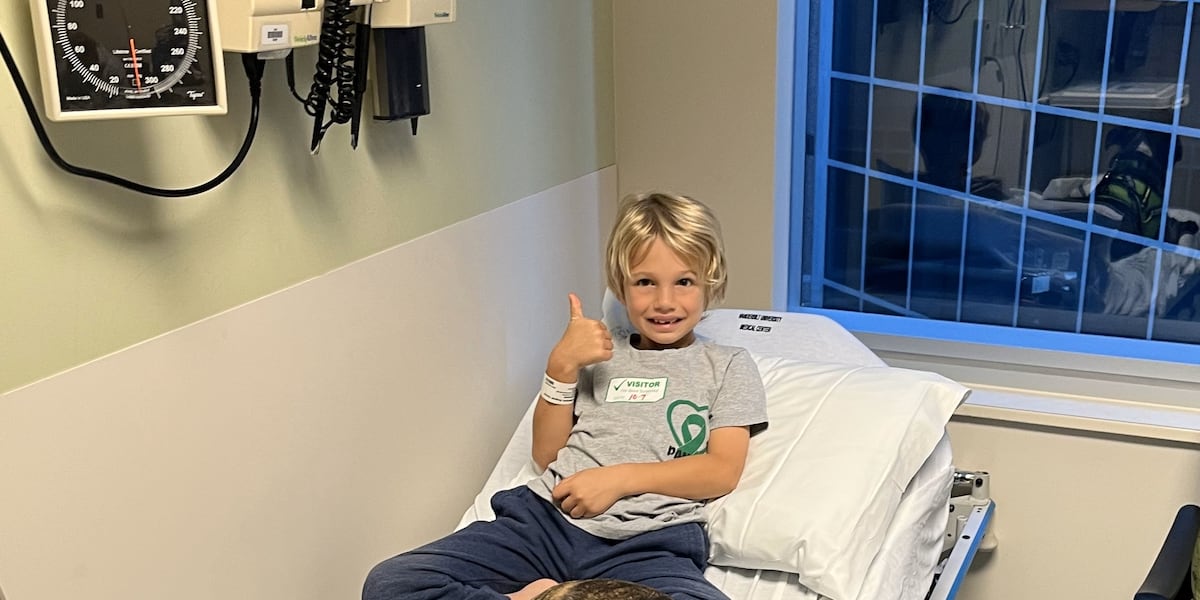NASHVILLE, Tenn. (WSMV) – A family in Middle Tennessee has shared their relief as their son receives a crucial [ppp1] treatment that they believe is saving his life. Despite facing denial from Cigna for coverage, Laura and Corey Wall, both employed by the Metro Nashville Police Department, managed to circumvent the insurance obstacles by seeking assistance directly from the Metro Benefit Board.
Their 9-year-old son Jameson is diagnosed with PANDAS, which stands for Pediatric Autoimmune Neuropsychiatric Disorders Associated with Streptococcal Infections. This condition, affecting one in every 200 children nationwide, along with Pediatric Acute-Onset Neuropsychiatric Syndrome (PANS), typically manifests after infections such as Strep, leading to sudden and severe changes in behavior, tics, unusual movements, and outbursts of rage.
Initially denied by Cigna, the requested treatment known as IVIG, which had shown promising results for Jameson, faced subsequent rejections even after appeals. Following media coverage by WSMV, a ray of hope emerged for Jameson and his family, not only in terms of his well-being but also in restoring a sense of normalcy in their lives.
The Wall Family discovered a pathway to escalate their appeals directly to the Metro Benefit Board, leveraging the self-insured medical plans offered by Metro Nashville. Tara Stewart from Metro Nashville Human Resources clarified that the Board holds the ultimate authority over coverage decisions. In a significant turn of events, the Metro Benefit Board unanimously granted approval for IVIG treatment for Jameson, ensuring continuous coverage for the duration of his medical necessity.
Laura Wall expressed optimism about the positive impact the approved treatment could have on Jameson’s condition, potentially alleviating self-harming tendencies, reducing aggressive behaviors, and restoring his ability to eat normally.
Despite Cigna’s stance citing IVIG as “medically unnecessary” in their correspondence, the PANDAS Network highlights the persistent skepticism surrounding this condition within the medical community since its identification in 1998. The organization underscores the challenges faced by parents seeking a proper diagnosis and subsequent treatment due to ongoing controversies and underrecognition of PANDAS.
The Wall Family, confronted with the daunting monthly treatment costs amounting to $15,000, emphasized the financial impossibility of shouldering such expenses independently. Laura underscored the critical role of IVIG in Jameson’s care, stating that without it, the only alternative would be residential care, lacking the necessary safeguards for his well-being.
The struggle faced by families like the Walls underscores the discord between insurance providers and medical experts regarding the acknowledgment and treatment of emerging conditions. While a legislative proposal in Tennessee aimed to mandate IVIG coverage by private insurers, the bill did not garner sufficient support in the current session.
Sen. Richard Briggs, a co-sponsor of the proposed bill, acknowledged the uphill battle in securing mandates for private insurance coverage but emphasized the importance of raising awareness about conditions like PANDAS. With only a handful of states enforcing insurance coverage for PANDAS, Tennessee stands apart, lacking such regulatory measures.
Copyright 2024 WSMV. All rights reserved.
